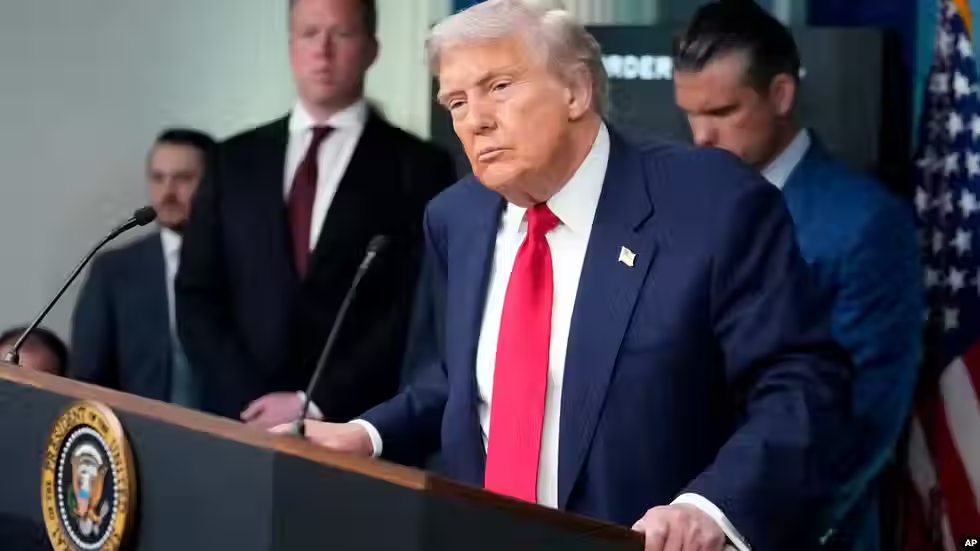The American 'Trump Route' Through Armenia: Who Benefits?
- Obyektiv Media
- Aug 12, 2025
- 3 min read

On August 8, in Washington, an important seven-point trilateral declaration was signed by Azerbaijani President Ilham Aliyev, Armenian Prime Minister Nikol Pashinyan, and U.S. President Donald Trump. In this declaration, Baku and Yerevan first confirmed their commitment to working toward a peace agreement. The foreign ministers of both countries initialed the agreement at the White House in the presence of the three leaders. Another key point of the declaration focuses on unblocking regional communications.
This is a central issue in the settlement process between the two countries. The 2020 Trilateral Statement by the leaders of Azerbaijan, Armenia, and Russia, which solidified the end of the Second Karabakh War, stipulated that "all economic and transport links" in the region would be unblocked. Armenia guaranteed safe transport connections between Azerbaijan's western regions and its exclave on Armenian territory, the Nakhchivan Autonomous Republic. The goal was to ensure the unimpeded movement of people, vehicles, and goods in both directions and to build new infrastructure. It was assumed that the Russian FSB Border Service would control this route.
However, the documents signed in Washington change the status of this transit. Point 3 of the new trilateral declaration confirms that a transport link to the Azerbaijani exclave must be opened and that this should be done "on the basis of respect for the sovereignty, territorial integrity, and jurisdiction" of Armenia and Azerbaijan. According to point 4, Yerevan commits to cooperating with Washington and other parties to establish the "Trump Route for International Peace and Prosperity" (TRIPP) on Armenian territory.
At a press conference, the American leader explained that TRIPP will be a "special transit zone that will allow Azerbaijan to get full access to its territory in Nakhchivan with full respect for the sovereignty of Armenia." He stated that Yerevan and Washington's partnership on this project "could last up to 99 years." Trump then turned to Pashinyan and said, "And then they promise to renew it after 99 years, right?" He also announced that American companies would handle the infrastructure development in the region, noting they "very much want to get into these two countries" and "spend a lot of money, which will bring economic benefits to all three of our countries."
According to the Armenian Prime Minister, TRIPP will "open up strategic economic opportunities that will bring long-term benefits." Pashinyan added that it "will promote infrastructure investment, improve regional connectivity, and strengthen U.S. leadership as a champion of conflict resolution."
"As for the section of the road that will pass through the territory of Armenia, it was agreed that a US-Armenian consortium will be created with the participation of a private American company, which will invest money in the restoration and construction of railways and highways. It will be something like a concession to manage this infrastructure," explained Armenian political scientist Johnny Melikyan.
The new route aligns more with the interests of Turkic countries, primarily Azerbaijan and Turkey, said Vadim Mukhanov, head of the Caucasus sector at the Russian Academy of Sciences' Institute of World Economy and International Relations. He notes that Armenia, as the losing side of the war, is forced to make concessions and is not the initiator of this route. Mukhanov added that this is essentially a change of guarantor for unblocking communications. While the Russian FSB Border Service was previously expected to be the direct executor, now it will be a private American company.
"We see that the United States has intensified its activities in the region. This activity is actually aimed at pushing out other major players. This entire campaign, not just the document signed in Washington, is negative for Moscow. There is a risk that major players with interests in the region, such as Russia and Iran, will be left behind," the expert concluded.
Johnny Melikyan believes that if the new route adheres to the principles of the "Crossroads of Peace" (Armenia's project to unblock all transport links in the region connecting Armenia, Azerbaijan, Iran, Turkey, and Georgia), it will be beneficial for Armenia. "If communications are unblocked, Armenia will be able to use the Turkish and Azerbaijani routes to get to Russia and other EAEU countries, such as Kazakhstan, via the Caspian Sea. It is important for us to have parallel routes and make our region part of major trade corridors from Europe to Asia," the expert said.
In his opinion, Yerevan and Baku reached an agreement thanks to the United States, and the 2020 trilateral statement is no longer relevant. "New agreements were needed. In this case, the United States was the broker that pressured both sides and achieved concessions from both. And what is important for us is that the concessions were not at the expense of Armenia's sovereignty and territorial integrity," the expert summarized.



Comments